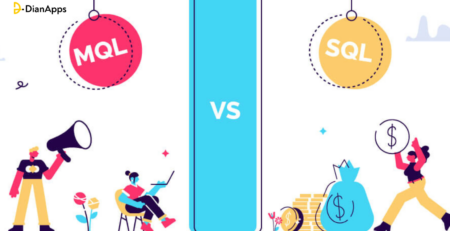7 Ways To Use Virtual Data Room Software
Virtual data rooms are a secure platform that offers companies a way to store and share sensitive information. No matter the size of the business, companies across various industries can use this software to streamline their operations, enhance collaboration between different parties, and safeguard everyone’s most sensitive information. Understanding how to use this software is a beneficial step for your business. Here are six ways to use virtual data room software:
1. Due Diligence Process
Virtual data rooms streamline the due diligence process in various situations, including mergers and acquisitions, real estate transactions, and legal proceedings. These rooms provide a structured platform for storing and categorizing documents, allowing easy access by all parties involved. Enhanced security features verify that confidential information remains protected throughout the process. It also allows for these processes to happen when parties are in different locations as access to the virtual data room is available online. Selective permissions prevent security breaches during long-distance due diligence processes.
Companies going through a due diligence process can access more helpful features with a virtual data room. A virtual “document shredder” revokes access to documents even if a person has downloaded the documents onto a computer. By removing access, companies can keep their information safe even if the deal does not complete. Due diligence for M&As, real estate, and legal proceedings can take some time but companies can set a time limit for accessing documents. Setting a deadline can help speed up the process.
2. Fundraising
Utilizing a virtual data room during fundraising activities allows startups and companies to efficiently manage and share relevant financial documents, business plans, and investor presentations with potential investors. When doing fundraising or capital raising, documents are consistently updated with new information on finances, new investors, and future planning. With a data room, there is no need to duplicate or replicate files for sharing between parties, which saves storage and time from updating each copy.
Investors and investment companies will want to keep their financial information safe and private. The security features protect sensitive information, assuring potential partners that their private information is safe during the entire process. Organizational tools help streamline the due diligence process. Companies can organize their files through a hierarchical tagging system, allowing parties to easily find necessary documents. This may help expedite fundraising efforts and provide transparency, building trust with prospective investors.
3. Legal Proceedings
Virtual data rooms can be useful in legal cases and litigation. They provide a secure environment for sharing sensitive documents related to legal disputes, court cases, or contract negotiations. Lawyers and legal teams can upload and organize any documentation with transparent tags, enabling efficient review and collaboration among parties. Safe virtual sharing reduces the need for document shuffling between legal parties. This prevents issues with different parties not receiving required documents. Law cases often involve a lot of information sharing. By using a virtual data room, legal teams speed up the sharing process and potentially the case proceedings.
Tracking user activity makes sure that all interactions with the documents are logged, adding a layer of security and accountability during sensitive legal processes. Selective permissions and editing capabilities safeguards confidential information by preventing anyone from sharing documents outside of the team while still allowing editing and sharing within the team. Legal teams can use virtual data rooms for litigation support, sharing documents like depositions and motions, and detailed reports on who has accessed and read the documents.
4. Intellectual Property Management
Virtual data room software offers an ideal solution for securely storing and sharing IP documents with stakeholders while keeping a detailed audit trail of who accesses what information and when. Companies can share this information in a controlled environment with legal teams, potential buyers, or licensing partners. They minimize the risk of intellectual property theft or leakage. Two-factor authentication adds another layer of security. This enhanced level of oversight and security is indispensable for protecting a company’s most valuable assets in the competitive market.
5. Strategic Partnerships
When entering a strategic partnership, companies must exchange information, including intellectual property, financial statements, and other proprietary data. A virtual data room facilitates this exchange by offering a secure environment where parties can share, monitor, and control documents. The ability to set permission levels and track document access helps to verify that each party can only see what they are supposed to. It enhances collaboration while safeguarding sensitive information. Features like single sign-on (SSO) and time limits can encourage a speedier process. Time limits prevent access after a certain date, requiring parties to make faster decisions.
6. Audit and Compliance Reporting
In industries where regulatory compliance and audits are frequent, data rooms organize and secure audit trails and compliance documents. A data room provides auditors with the necessary documentation and shows that the business has taken steps to protect their sensitive information. Its access logs and document tracking capabilities demonstrate a company’s adherence to compliance standards, reducing the risk of legal or financial consequences.
7. Restructuring
Companies that need to be restructured require much documentation sharing. When ownership is changing, finances are restructuring, or the company is de-merging, all sorts of parties are involved and need to access important information. Accountants, investors, and lawyers can use virtual data rooms to securely share and access documents about finances, employees, future partnerships, and any other information that is required. Data rooms can activate a setting that automatically converts files to a PDF after downloading. A hierarchical tagging system allows involved parties to know which documents are most important to read or fill out first. The strong security features and multiple capabilities that encourage a fast due diligence process make virtual data rooms indispensable for companies going through restructuring or turnarounds.
Use Virtual Data Room Software for Your Business
Data rooms help improve the efficiency, security, and success of businesses. Data rooms provide a secure platform for document sharing, project management, and compliance tracking. Organizations protect sensitive information by implementing virtual data room software and creating a collaborative and efficient work environment. Whether a business is navigating an M&A deal or managing a cross-global project team, using a data room can streamline their processes. Find reliable data room software today to enhance your security and facilitate smoother transactions.




